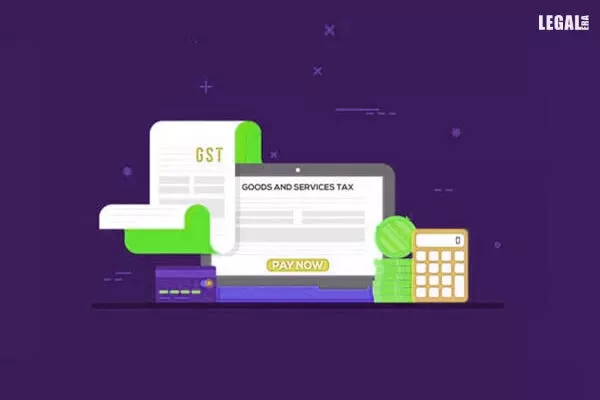- Home
- News
- Articles+
- Aerospace
- Artificial Intelligence
- Agriculture
- Alternate Dispute Resolution
- Arbitration & Mediation
- Banking and Finance
- Bankruptcy
- Book Review
- Bribery & Corruption
- Commercial Litigation
- Competition Law
- Conference Reports
- Consumer Products
- Contract
- Corporate Governance
- Corporate Law
- Covid-19
- Cryptocurrency
- Cybersecurity
- Data Protection
- Defence
- Digital Economy
- E-commerce
- Employment Law
- Energy and Natural Resources
- Entertainment and Sports Law
- Environmental Law
- Environmental, Social, and Governance
- Foreign Direct Investment
- Food and Beverage
- Gaming
- Health Care
- IBC Diaries
- In Focus
- Inclusion & Diversity
- Insurance Law
- Intellectual Property
- International Law
- IP & Tech Era
- Know the Law
- Labour Laws
- Law & Policy and Regulation
- Litigation
- Litigation Funding
- Manufacturing
- Mergers & Acquisitions
- NFTs
- Privacy
- Private Equity
- Project Finance
- Real Estate
- Risk and Compliance
- Student Corner
- Take On Board
- Tax
- Technology Media and Telecom
- Tributes
- Viewpoint
- Zoom In
- Law Firms
- In-House
- Rankings
- E-Magazine
- Legal Era TV
- Events
- Middle East
- Africa
- News
- Articles
- Aerospace
- Artificial Intelligence
- Agriculture
- Alternate Dispute Resolution
- Arbitration & Mediation
- Banking and Finance
- Bankruptcy
- Book Review
- Bribery & Corruption
- Commercial Litigation
- Competition Law
- Conference Reports
- Consumer Products
- Contract
- Corporate Governance
- Corporate Law
- Covid-19
- Cryptocurrency
- Cybersecurity
- Data Protection
- Defence
- Digital Economy
- E-commerce
- Employment Law
- Energy and Natural Resources
- Entertainment and Sports Law
- Environmental Law
- Environmental, Social, and Governance
- Foreign Direct Investment
- Food and Beverage
- Gaming
- Health Care
- IBC Diaries
- In Focus
- Inclusion & Diversity
- Insurance Law
- Intellectual Property
- International Law
- IP & Tech Era
- Know the Law
- Labour Laws
- Law & Policy and Regulation
- Litigation
- Litigation Funding
- Manufacturing
- Mergers & Acquisitions
- NFTs
- Privacy
- Private Equity
- Project Finance
- Real Estate
- Risk and Compliance
- Student Corner
- Take On Board
- Tax
- Technology Media and Telecom
- Tributes
- Viewpoint
- Zoom In
- Law Firms
- In-House
- Rankings
- E-Magazine
- Legal Era TV
- Events
- Middle East
- Africa
AAR rules GST payable on an online database and non-educational journals

AAR rules GST payable on an online database and non-educational journals
The Coram guides on tax on files and downloading the articles or information
The Uttar Pradesh Authority of Advance Ruling (AAR) has held that the Goods and Services Tax (GST) is payable on online databases, online books, newspapers, directories and non-educational journals.
The applicant, Manupatra Information Solutions Private Limited is engaged in providing online text-based information including books, newspapers, periodicals and directories to law firms, lawyers, companies, government, judiciary and law schools through its website.
It sought the advance ruling on the Central Tax (Rate) of June 2017 further amended in January 2018. The amendment ruled that the services provided to an educational institution, by way of the supply of online educational journals or periodicals were taxed at NIL rates.
This created confusion, as some law schools insisted that GST was not applicable to them on account of the amended notification. They desired to know if the services provided were covered by the amendment. If the answer was in the affirmative, were they entitled to charge GST at NIL rates?
The Coram of Vivek Arya and Abhishek Chauhan ruled that the database and journals or periodicals came in a different category and an exemption was not available to an online database, books, newspapers, directories and non-educational journals under the Central Tax (Rate), 2017.
The AAR ruled, "We find that the invoices issued by the applicant to different educational institutions mention 'Annual Subscription Online Database'. But it does not mention 'online educational journals or periodicals.'
Therefore, the applicant is collecting a subscription fee, which is nothing but the fee charged to gain access to the data available in the database and to download the articles or information. The said invoices are not in respect of the supply of online educational journals or periodicals."



